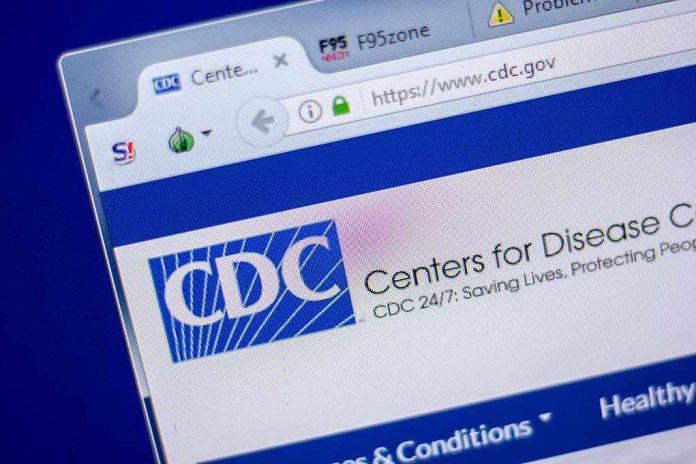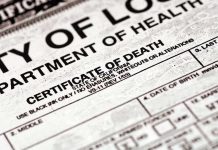
When the world’s leading health authority abruptly signals that vaccines might cause autism—after decades of stating the exact opposite—the ground shifts beneath every parent, doctor, and policymaker in America.
Story Snapshot
- The CDC changed its website to suggest vaccines could cause autism, contradicting years of scientific consensus.
- This reversal was reportedly ordered by HHS Secretary Robert F. Kennedy Jr., bypassing CDC scientists and experts.
- Medical, scientific, and advocacy communities have issued swift, unified condemnation, warning of a public health crisis.
- No credible evidence supports the new claim, raising concerns of political interference in science.
CDC Website Change: A Flashpoint in the Vaccine-Autism Debate
On November 19, 2025, the CDC rewrote a core page on autism and vaccines, upending its longstanding assertion that vaccines do not cause autism. The new language claims, “studies have not ruled out the possibility that infant vaccines cause autism,” and goes further by referencing previously discredited research as if it deserved fresh consideration. The order reportedly came directly from HHS Secretary Robert F. Kennedy Jr., a figure long associated with anti-vaccine activism. For many in public health, this was the moment the line between science and politics was crossed in plain view.
The reaction was instantaneous and severe. Pediatricians, virologists, and autism advocacy groups blasted the move as reckless and dangerous. The Autism Science Foundation’s Alison Singer called it “a direct threat to child health,” while former CDC chief medical officer Debra Houry stated bluntly, “Scientists were not involved in any of these decisions, and when you remove science from scientific information you get ideology.” The CDC’s credibility, built over decades, was suddenly in open question. Even seasoned observers could not recall a time when a political appointee had so directly overridden the agency’s scientific staff to alter a message with such far-reaching effects.
The Myth That Won’t Die: How Politics Resurrected a Debunked Theory
The vaccine-autism myth traces back to a now-retracted 1998 study by Andrew Wakefield, which major journals, leading scientists, and multiple large-scale reviews have thoroughly discredited. For decades, the CDC, World Health Organization, and National Academy of Sciences have all concluded there is no causal link between vaccines and autism. Yet, anti-vaccine activism has remained persistent, with Robert F. Kennedy Jr. among its most prominent voices. Upon becoming HHS Secretary, Kennedy hired known anti-vaccine activists to review CDC data and, against promises made during his confirmation hearings, orchestrated the website change.
Advocacy groups immediately recognized the stakes. Autism Society of America, Autism Self Advocacy Network, and the Autism Science Foundation condemned the edits, warning of renewed stigma against autistic individuals and a wave of parental fear. Healthcare providers braced for a flood of anxious questions and possible vaccine delays. For families who rely on the CDC as a bulwark against misinformation, this reversal posed a direct threat to trust and health outcomes.
Ripple Effects: Public Health, Policy, and the Cost of Confusion
Confusion among parents and clinicians surfaced overnight. Pediatricians reported calls from parents unsure if they should proceed with routine immunizations. Advocacy groups highlighted the risk of preventable disease outbreaks, as even small drops in vaccination rates can quickly lead to resurgences of measles, mumps, and other deadly illnesses. The specter of the COVID-19 pandemic’s misinformation battles loomed large, with many experts warning that trust in federal health authorities—already battered—could now be irreparably damaged.
CDC website changes to include false claim about autism and vaccines https://t.co/rJ1Bt7TMIX
— CBS News (@CBSNews) November 20, 2025
Meanwhile, anti-vaccine groups like Children’s Health Defense, founded by Kennedy himself, celebrated the change as a long-overdue victory. For public health officials, this was not merely a communications blunder but a calculated ideological intervention. The CDC’s prior leadership had agreed during Kennedy’s confirmation not to remove statements denying a vaccine-autism link. That agreement was clearly abandoned. The new message, unsupported by any credible new evidence, now sits atop a federal health agency’s flagship resource page, sowing doubt and division.
Expert Consensus and the Battle for Scientific Integrity
The scientific record remains unequivocal: comprehensive reviews by the CDC, World Health Organization, Johns Hopkins, and peer-reviewed academic studies confirm no link between vaccines and autism. Experts warn that the CDC’s website change undermines the very foundation of evidence-based policymaking. Debra Houry captured the sentiment: “When you remove science from scientific information you get ideology.” Autism advocacy leaders have underscored the real-world harm, cautioning that stigma and misinformation fuel not only mistrust but tangible health risks for vulnerable children.
As the CDC’s advisory committees prepare to revisit the childhood vaccination schedule, the outcome of this precedent is uncertain. The agency’s reputation, once seen as a gold standard, is now entangled in political controversy. The broader message to the public is unmistakable: when science loses its seat at the table, everyone pays the price.



